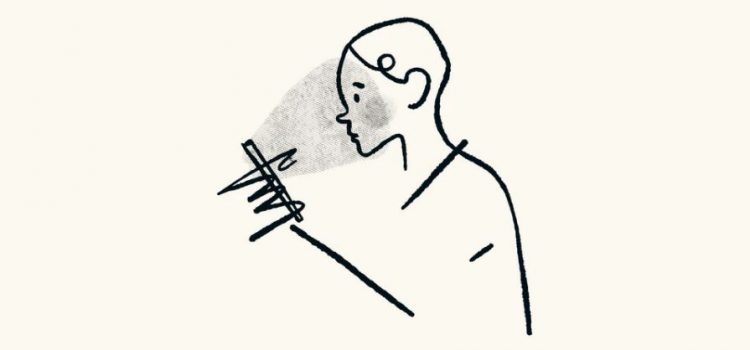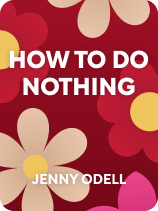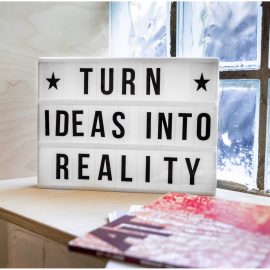

This article is an excerpt from the Shortform book guide to "How to Do Nothing" by Jenny Odell. Shortform has the world's best summaries and analyses of books you should be reading.
Like this article? Sign up for a free trial here.
What’s an “attention economy” mindset? Is your attention susceptible to manipulation?
In How to Do Nothing, professor and visual artist Jenny Odell argues that the feeling that you always need to be doing something is created by broader social and economic forces. She contends that directing your attention to “non-productive” things is a form of healing and social activism.
Read more to learn the importance of where you direct your attention and how to reclaim control of it.
Change Where You Direct Your Attention
“Doing nothing” requires changing how you use attention, explains Odell. In particular, she emphasizes the importance of self-awareness—that is, noticing where you direct your attention. Odell argues that you can take back control through self-awareness—by being aware of attention manipulation and value-based thinking.
(Shortform note: Being in the moment and noticing where you place your attention not only resists the attention economy but also can help in managing depression, anxiety, and other mental illnesses. This mental state is also known as mindfulness, and in the past few years, it has grown increasingly popular among therapists and psychologists as a therapeutic technique. Studies show mindfulness therapy and strategies like breathing exercises or meditation are effective methods of treating anxiety, depression, and stress—suggesting opting out of the attention economy mindset and focusing on the world around you can do the same.)
1) Be Aware of Attention Manipulation
Odell explains that, in the attention economy, people attempt to manipulate your attention through a number of different tricks—clickbait, addictive social media apps, flashy advertisements, and so on. Therefore, taking back control of your attention requires you to be aware of when your attention is being manipulated. Once you understand how people are trying to grab your attention, you can be more intentional in giving your attention to what you really care about, instead of to whatever is manipulating you.
For example, you might see a headline that makes a bold claim you strongly disagree with. Instead of getting angry, clicking on it, and giving the author attention, you could recognize that whoever wrote the headline is trying to make you angry and choose to ignore it instead.
(Shortform note: To take control of your attention, it can help to understand in detail how others are trying to manipulate it. In Contagious, Jonah Berger explains that for an idea to attract a large audience, it must be connected to an effective trigger—in other words, it must be associated with a specific concept or stimulus, an association that people usually achieve through marketing. For example, Corona’s advertising associates the beer with beaches, causing people to think about the product when they think about beaches or sand. By paying attention to how triggers make you associate regular, everyday things with products or ideas, you can actively resist attempts to manipulate your attention.)
2) Awareness of Value-Based Thinking
According to Odell, the attention economy mindset also creates strong thought patterns relating time and attention to value. For example, you might get frustrated with yourself when you feel like you’re not being productive, dismiss a task or activity because you see it as lacking practical value, or feel anxious whenever you aren’t working. She suggests you notice when you’re having these thoughts and directly challenge them, recognizing that they’re part of the harmful attention economy mindset.
For example, you might enjoy painting for yourself but worry you’re wasting time if you don’t get value out of it, either by building a following on social media or by selling your paintings. Instead, recognize this worry comes from the attention economy and that if you do monetize painting, you’ll likely enjoy it less.
(Shortform note: To help challenge value-based thinking, you can set goals for yourself based on what will bring you joy or satisfaction. This not only distracts you from the attention economy mindset but also gives you an incentive to do nothing. For example, in Keep Going, Austin Kleon suggests making art for the people you love and care about instead of making it for money or acclaim on social media. Making art as a gift not only avoids the attention economy mindset but also gives you the satisfaction of bringing someone else joy.)
Exercise: Do Nothing
Consider how you can implement Odell’s approach to doing nothing—leaving behind the attention economy mindset and changing how you use attention and time.
- Odell explains that doing nothing requires taking back control of your attention. Were there moments in the past day when your attention was manipulated? How can you avoid these manipulation tactics next time?
- Do you agree with Odell’s claim that doing nothing can contribute to social change? Why or why not?

———End of Preview———
Like what you just read? Read the rest of the world's best book summary and analysis of Jenny Odell's "How to Do Nothing" at Shortform.
Here's what you'll find in our full How to Do Nothing summary:
- Why we always feel the need to be doing something
- Why you should devote time to non-productive activities
- How to engage with the world in a deeper, more satisfying way






